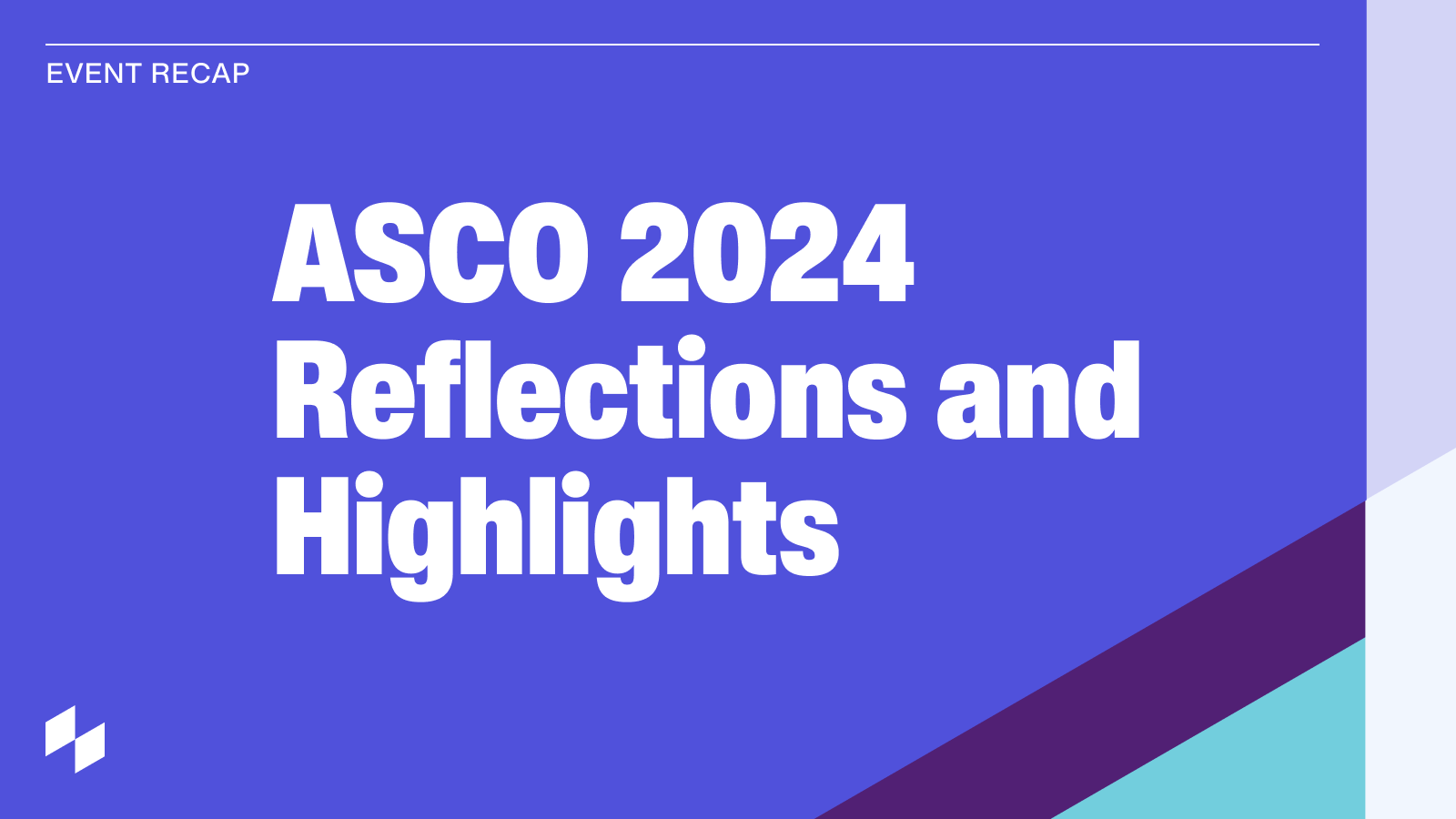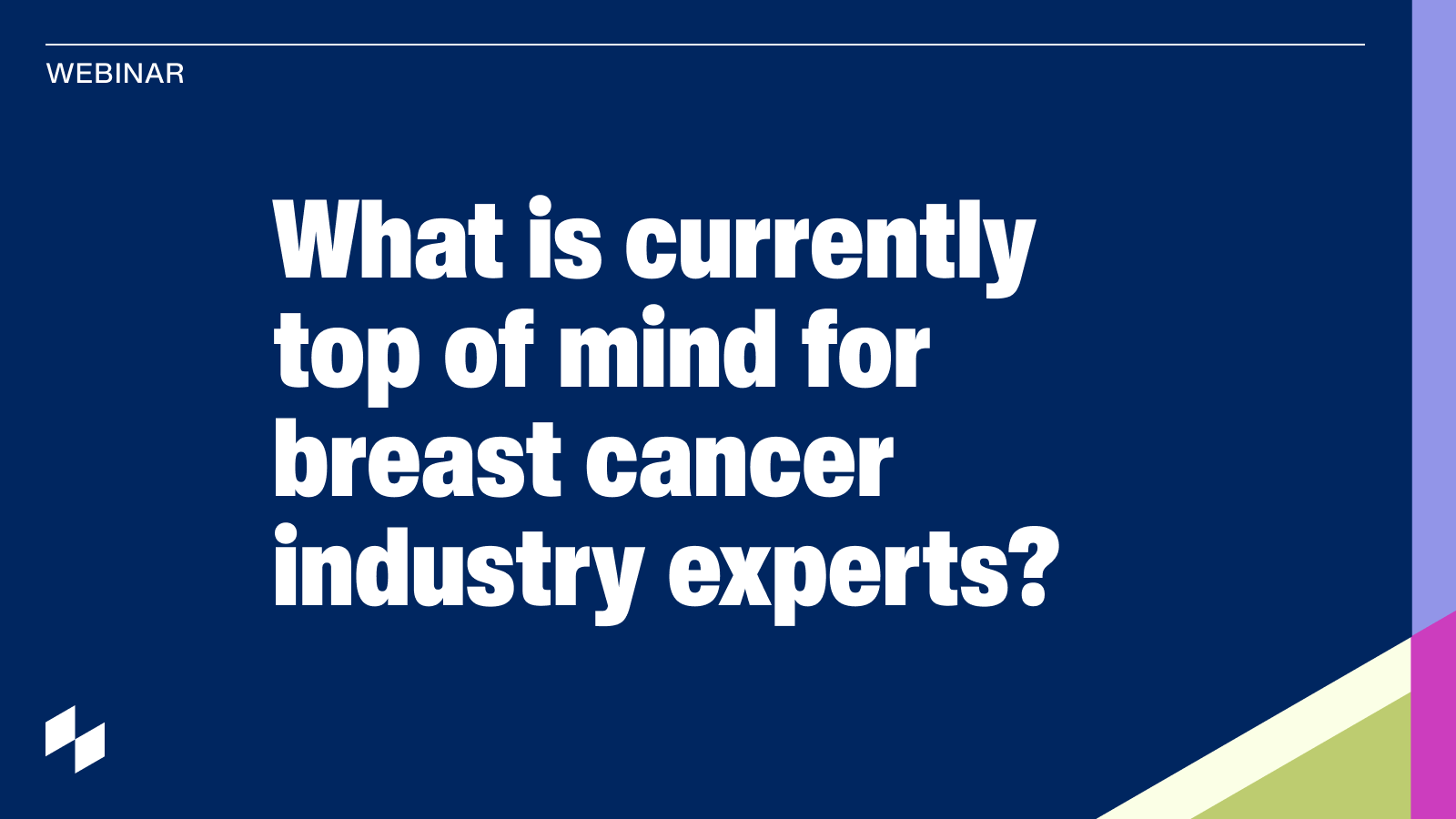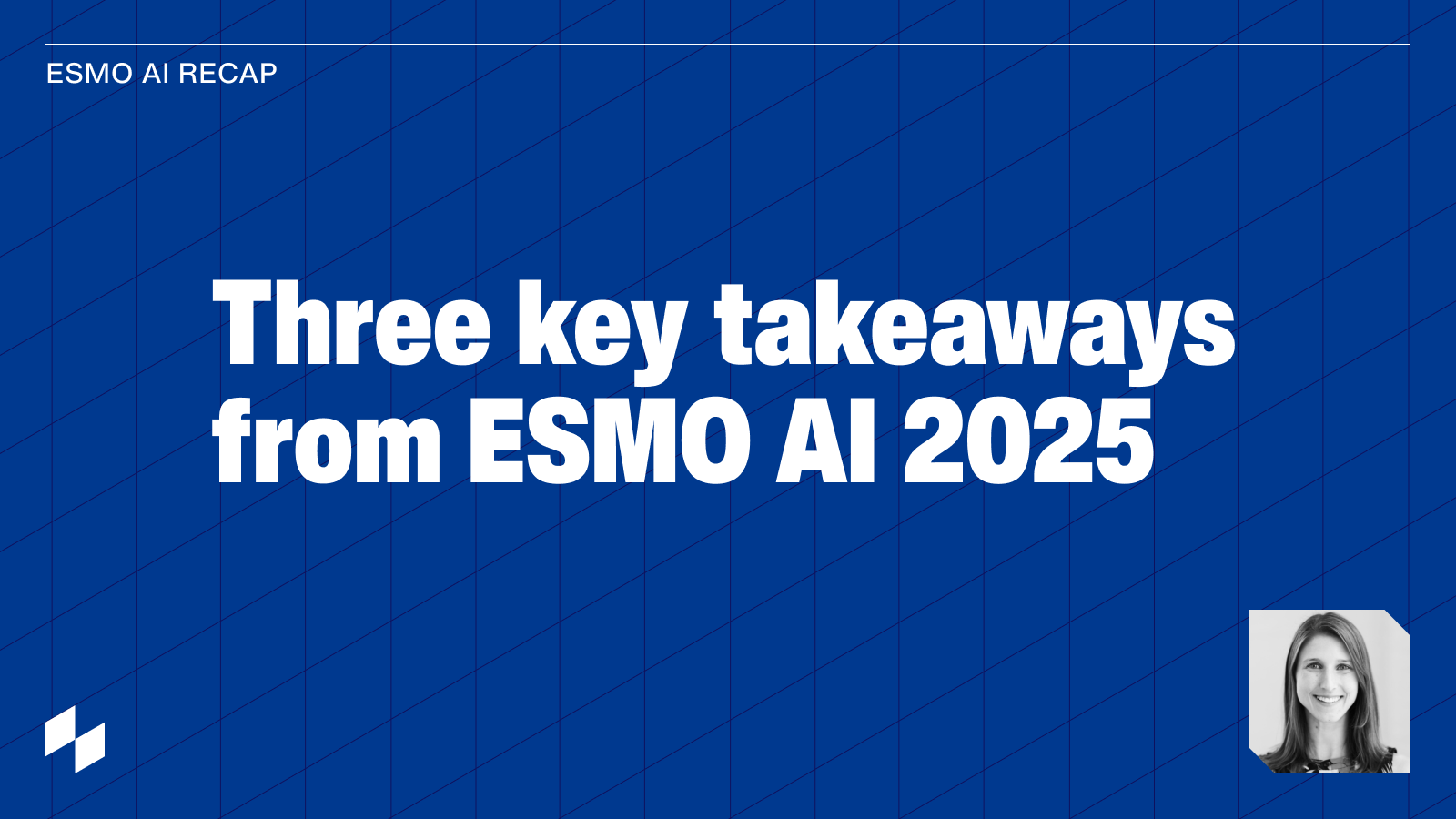Earlier this month the American Society of Clinical Oncology (ASCO) hosted its annual meeting in Chicago, bringing together more than 40,000 oncology professionals, patient advocates, and industry representatives from across the globe to share the latest findings in oncology research. This year’s meeting provided an exciting mix of practice-changing clinical trials results, early phase signals, biomarker developments, and health care delivery insights. As in past years, so much is learned from “sidebar conversations” and catching up with old colleagues in addition to scheduled program sessions. Reflecting on the meeting, six overarching themes stood out:
-
Treatment decision making is increasingly complex. With multiple treatment options available in an increasing number of clinical contexts, the likelihood of prospective comparative studies in every situation to guide treatment recommendations is low. High quality comparative effectiveness studies and other innovative approaches to clinical decision making using real-world data (RWD) can help fill this gap. With the proliferation of highly effective systemic treatments, the question is arising regarding the optimal duration of therapy as well. RWD are already helping to fill these evidence gaps as highlighted in an education session at ASCO where duration of immunotherapy after prolonged remission was discussed. In parallel, the need for point-of-care decision support is also growing.
-
New targets, drugs, and modalities. While this wasn’t a huge year at ASCO in terms of practice-changing new approaches, there were a variety of early investigations with clinical signals of efficacy in solid tumor and hematologic malignancies, including new targets and early evidence of CAR T activity in certain solid tumors.
-
Early stage disease. This is a growing area of drug approvals, and treatment and biomarker research. The moving treatment landscape will likely increase the demand for current data on practice patterns and associated outcomes. The application of predictive and prognostic biomarkers will work in what patients, and are there patients who don’t need treatment beyond surgery or radiation alone) has the greatest potential impact in the setting of early stage cancer where the goal is cure. Flatiron’s partnerships with Caris, FMI and other diagnostic companies provide grist for correlative science.
-
Minimal Residual Disease (MRD, also called Molecular Residual Disease). Blood-based diagnostics (e.g. circulating tumor DNA) is a growing area of interest in solid tumors, particularly in early stage disease as noted above. A challenge for these assays is the high level of performance (clinical validity; sensitivity, specificity, PPV, NPV) required to actually change a patient’s course. Overall, there is optimism that ongoing prospective studies and registries will demonstrate the impact of MRD biomarkers on treatment selection and associated outcomes across many tumor types.
-
Artificial intelligence. Any clinical and research gathering in 2024 will devote discussion to the application of LLMs, ML, etc. to research and clinical care. ASCO was no different. Several academic and commercial entities are demonstrating the ability of machines to predict patient outcomes and treatment effects based on digital images (pathology and radiology). LLMs are being explored in many clinical areas including decision support, patient triage, clinical trial matching, and clinical documentation. In spite of the historical conservatism of many clinicians in embracing new innovations, oncologists are becoming early adopters, especially as LLMs become a routine part of other aspects of our lives.
-
Clinical trial design and execution. From every direction (FDA, NCI, patient advocacy groups, policy groups, clinical investigators, biopharma) there is support for simplification of study designs, reduced data collection, community-based clinical research, and more inclusive studies. A significant development over the past 2 years is that the FDA is providing increased clarity through published guidance and public comment (although more is always desired!), setting up mechanisms to pilot new approaches, and providing funding. Interactions with biopharma and academics at ASCO confirm that the time is now for reimagining clinical trials through a combination of new technological support and operational innovations.
We look forward to working alongside our partners to advance the next oncology breakthroughs with our end-to-end evidence solutions.
To learn more about Flatiron’s work powering research across the product development lifecycle, join us for a webinar on the dynamic breast cancer research and treatment landscape on Tuesday, July 23rd at 12PM ET.



